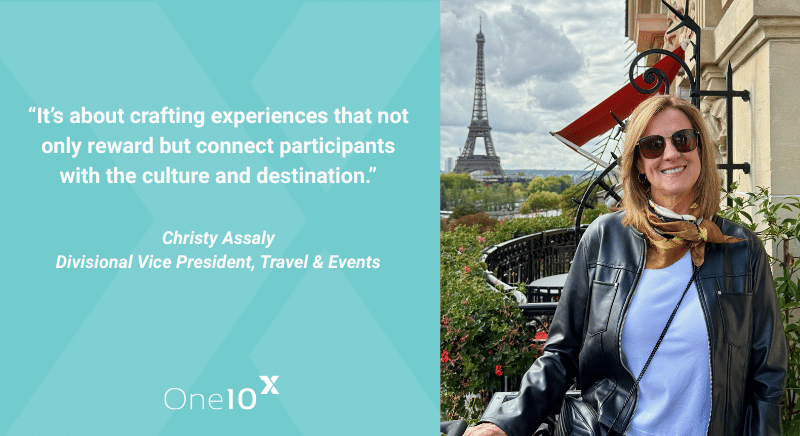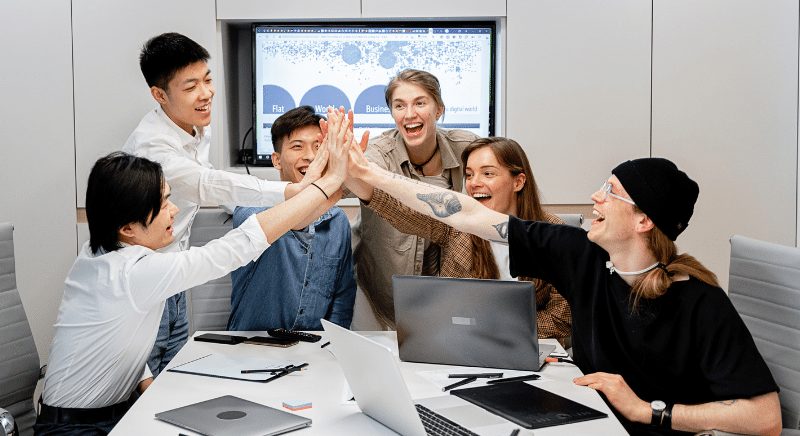If you’ve worked in HR for any length of time, you’ve probably heard someone say, “People just want to feel appreciated.” It turns out, that’s not just a nice idea. It’s a proven driver of engagement, performance, and retention.
The Incentive Research Foundation’s latest reports, Building a Culture of Recognition and The Big Three Drivers of a Culture of Recognition, offer valuable insights backed by data that reinforce what we at One10 have long believed: recognition isn’t an add-on. It’s a foundational part of workplace culture and a strategic imperative.
As a company that designs recognition and incentive programs for global clients, we also live those values internally. These new IRF studies confirm the very practices we’ve been focused on: authenticity, frequency, and timeliness of recognition. Here’s how those three truths show up in the research — and in our daily work at One10.
1. Frequency Builds Credibility, Not Fatigue
One of the most powerful takeaways from the IRF’s supplemental study was that frequent recognition doesn’t dilute sincerity. Instead, it reinforces it. Employees who receive daily or weekly recognition rate its sincerity higher than those who receive it monthly or rarely. In fact, the IRF found that those who never receive recognition rate its sincerity at just 28 out of 100.
That number is more than disappointing, it’s dangerous. Lack of recognition erodes trust, lowers engagement, and can increase turnover. In contrast, frequent recognition builds energy, enthusiasm, and commitment. As the IRF puts it, “Frequency isn’t the enemy of sincerity, it’s the foundation of it.”
At One10, we see this in our own study, which found that employees who feel properly recognized are 74% more likely to stay. Whether it’s peer-to-peer shout outs, leader-led praise, or personalized rewards, we’ve embedded recognition into the rhythm of our work. It’s not about throwing parties every day, it’s about noticing and naming contributions often enough to keep people connected to purpose. It’s about having recognition as a key component of our culture.
2. Timeliness Signals Sincerity
Another critical finding from the IRF research is that when you recognize matters just as much as how you recognize. When recognition is delivered quickly, ideally close to the contribution, employees perceive it as far more genuine.
Recognition delayed feels like an afterthought. But when a manager or peer offers timely praise, it signals that the employee’s contributions are truly seen, valued and appreciated. This is especially true in hybrid and remote work environments, where informal “thank yous” in the hallway don’t happen naturally.
We’ve adapted by equipping our leaders with easy-to-use tools that make recognition in-the-moment simple, whether that’s a message in our internal platform, a mailed gift card, or even a gift of points to be redeemed later for a larger prize. As a result, we are seeing greater commitment across teams to provide immediate recognition, regardless of where employees are working.
3. Sincerity Over Stuff
Perhaps the most inspiring takeaway from the research is this: it’s not the size of the reward that matters, it’s the sincerity behind it. Employees who felt that recognition was genuine rated even a simple “thank you” at 61 out of 100. But when sincerity was missing, the same gesture fell to 27.
This reinforces what we advise our clients every day: don’t mistake tangible rewards for meaningful recognition. A points-based program or curated catalog of experiences is only powerful if it’s delivered with context and authenticity.
At One10, we cultivate a culture where appreciation is both personal and specific. We recognize individuals not merely for achieving KPIs, but for how they contribute—through their creativity, service-first, collaboration, and commitment to one another.
This approach aligns with One10’s core values, emphasizing the importance of recognizing and celebrating the unique contributions of each team member
Putting the Research into Action
So how can organizations use these findings to elevate their recognition culture? Here are a few lessons we’ve learned:
- Build systems that support spontaneity. Empower employees and leaders with tools that make recognition easy and immediate. Don’t wait for annual reviews or quarterly meetings.
- Coach for authenticity. Recognition should be specific and personal. Train managers to connect praise to values and contributions, not just outcomes.
- Diversify the sources of recognition. The IRF notes that employees who receive frequent recognition get it from a broader range of people, including peers, senior leaders, and customers. The more channels, the better.
- Recognize the human, not just the worker. Don’t underestimate the power of appreciating someone for who they are, not just what they do. That’s what makes work feel meaningful.
- Empower employees through the power of choice. Flexibility turns recognition into a motivation tool that respects individual preferences, making the reward experience more impactful and engaging.
At One10, we’re proud to design programs that move people. We’re prouder to model that commitment inside our own culture. Recognition isn’t just something we offer clients, it’s how we lead, listen, and lift one another up.
The IRF’s research affirms what we already know to be true: recognition done well isn’t about checking a box. It’s about cultivating connection. And in this moment where talent is harder to retain, and culture is more important than ever, that connection is everything.

Nicole Neal
Nicole Neal is a 25-year human resources professional who has focused her career on helping organizations create intentional cultures. Working with a variety of companies spanning from fast-growing technology firms to large global organizations, Nicole has shared her passion for helping employees through change while focusing on the employee experience. She is currently the EVP of Employee Xperience at One10 where she leads a team of human resources professionals tasked with fulfilling One10’s mission of creating an employee centric workplace.



